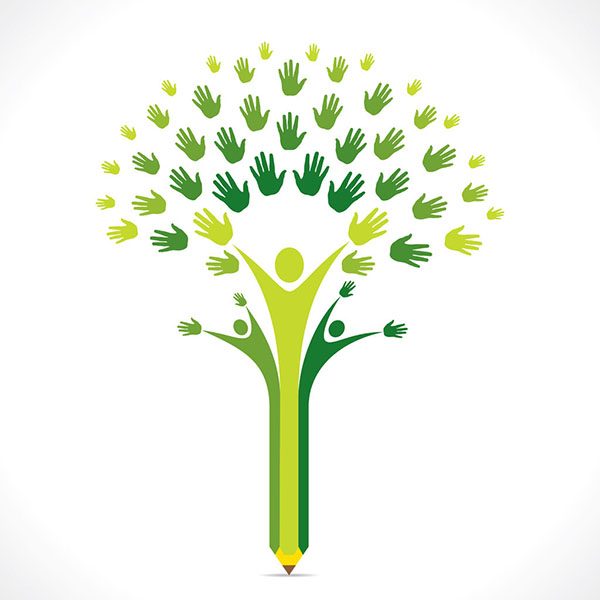2023 Call for Proposals
Conference on Community Writing™ 2023
“Activating Radical Imagination”
Call for Proposals
Keynote Address and Game with Ozy Aloziem and Bobby LeFebre
Keynote Conversation with Christina Cedillo, Ersula Ore, and Kimberly Wieser
Denver, CO
October 12-14, 2023
Hosted by the University of Denver
Deadline for proposal submissions: Sunday, March 1, 2023
The Coalition for Community Writing invites you to co-create with us in community, to explore collaborations, and to activate radical imagination at the fifth biennial Conference on Community Writing. The conference brings together community residents, organizers, nonprofit leaders, writers, artists, journalists, digital storytellers, mindfulness teachers, school teachers, students, scholars and more, who all theorize, enact, and write the stories of community change. CCW focuses on community writing, capaciously defined, as a framework to explore how change happens. In the work of social change, community writing is necessary, contemplative, therapeutic, coalition-building, and action-based. People coordinate strategies, design courses and curricula, preserve stories of the past, make public art, contest local histories, compose grant proposals, perform community theater, create protest signs, and much, much more.
In 2023, the Conference on Community Writing will be held in person and online and will engage the theme “Activating Radical Imagination.” Building on multiple lineages of activists, Denver-based social work professor and social justice imagineer Ozy Aloziem invites us to use radical imagination as a tool for joyful practice and “imagining a world that doesn’t exist” (1) in order to construct more just worlds in the present. Given the entrenched and interconnected violences that structure our worlds, this work can feel impossible, especially in the midst of grief and anger.
While we make inroads and build coalitions through hundreds of projects in our neighborhoods and across the world, unless these structures of oppression are tackled “radically,” from the Latin “root,” systems will not change. Radical imagination is both influenced by and influences longstanding traditions such as Black feminist thought, disability justice, trans liberation, queer of color critique, Indigenous sovereignty and efforts to repatriate stolen land, and many more movements that not only foundationally center community flourishing but also direct us toward transformative, life-affirming social change.
At its core, all of this root work requires imagination. As Aloziem explains,“Crisis blows open the door to what is possible,” urging creativity and wonder over fear and despair. Radical imagination, then, can serve as a spark for what Carmen Kynard calls “doing the work” (2) toward disrupting the violences perpetuated by universities and other institutions. So too must our community work of envisioning and co-creating more just worlds be collectively guided by and called into being through a joyful practice rooted in what bell hooks called “a love ethic” or “love as a practice” (3). Only through such an ethic of collective care and reciprocal support can these possibilities be realized.
Similarly, radical imagination is a collective practice and a process. In The Radical Imagination: Social Movement Research in the Age of Austerity, Khasnabish and Haiven explain, “The radical imagination is not just about dreaming of different futures. It’s about bringing those possibilities back from the future to work on the present, to inspire action and new forms of solidarity today.” In Freedom Dreams: Black Radical Imagination, Robin Kelley asks: “How do we produce a vision that enables us to see beyond our immediate ordeals? How do we transcend bitterness and cynicism and embrace love, hope, and an all-encompassing dream of freedom?” Coming together to practice radical imagination we hope to, to paraphrase Mariame Kaba (4), let this moment radicalize us, rather than lead us to despair. The conference will center BIPOC voices and theoretical frameworks in discussions of and actions toward the “radical transformation” of institutions that Ersula Ore, Kimberly Wieser, and Christina Cedillo call for in their four journal special issues (5) published in the last year in the fields of rhetoric and writing studies. Radical imagination offers a framework, a tool, and a process for radical transformation that allows people to imagine a more just world than currently exists and to begin to collaboratively work that world into being.
Our Invitation to You
In October, 2023, the Coalition for Community Writing (CCW) and the University of Denver call together people involved or interested in community writing to convene in Denver, Colorado to collectively activate radical imagination in order to create a space for coalition building, idea sharing, action, and celebration. When we come together in Denver, we will use and act in radical imagination as a tool and as a process for community writing as we reflect, connect, and organize together toward more just and joyful communities and institutions, toward radical transformation. We will meet in a different area of the city each day, highlighting some of the activist, civic, and academic spaces where community writing comes to life, from the historically Black and culturally vibrant Five Points neighborhood, to the bustling downtown city center, to the University of Denver campus.
Example Questions and Topics to Consider
We invite proposals that may consider questions and topics such as:
- What work does the current historical moment call forth in us, and what models, methodologies, case studies, and theories can you share to help others collaboratively activate radical imagination?
- What models exist for significant institutional transformations, and what models do we need to create? How can we use radical imagination to do that work?
- How do community writers use genres such as blogs, podcasts, games, manifestos, graffiti, mural art, social media, theater, and more to tell stories of community?
- How might using and acting in radical imagination impact courses, curricula, and programs?
- How does community writing address systemic racism; cisheteropatriarchy; ableism; environmental and health injustice; economic injustice; and barriers to civil rights and equity for all people?
- Who activates resistance in and for communities through community writing and radical imagination?
- How do people write through trauma and pain, and how does community writing support them in this work? How do communities create room for self-care, meditation, healing, and thriving? How do they write through joy, love, and collective care?
- How do policies that affect communities get written? Whose narratives are those policies based on? Who is seen and not seen? How do communities build power to affect those policies?
- How does the frame of radical imagination help build reciprocity and the sharing and celebrating of multiple forms of knowledge across academic and non-academic community spaces?
We welcome proposals that engage, demonstrate, theorize, and offer methodologies related to community writing and activating radical imagination in any number of creative and collaborative ways.
Submission Details
Proposals for all formats should be 250-500 words. The proposal portal will open in December 2022. Submission deadline is Wednesday, March 1, 2023. To access the proposal portal or to find conference information, visit the conference website: www.communitywriting.org. Check back regularly for updates. To ensure that you receive all conference information, we recommend that you subscribe to the Coalition for Community Writing listserv.
With gratitude, we ask that all in person and virtual presenters be Coalition for Community Writing members at the time of the conference and plan to register for the conference at an early bird rate between May-July 2023, if at all possible. This helps the host committee to plan and to create the best experience for you. Membership is not required to submit a proposal, though we sure do appreciate the support if you’re able.
We ask all presenters, in-person and virtual, to please peruse our Presentation Accessibility Guide, developed by CCW Board member, Ada Hubrig. We will make it available on the CCW website in early 2023.
Footnotes
- See her TED Talk here. Learn more about her Radical Imagination Game collaboration with Poet Laureate of Colorado, Bobby LeFebre, “Proyecto Sobremesa.”
(Return to your spot above by clicking here.) - See Carmen Kynard. “All I Need Is One Mic”: A Black Feminist Community Meditation on TheWork, the Job, and the Hustle (& Why So Many of Yall Confuse This Stuff).” Community Literacy Journal, vol. 14, no. 2, 2020. pp. 5-24. doi:10.25148/14.2.009033.
(Return to your spot above by clicking here.) - bell hooks All About Love (165)
(Return to your spot above by clicking here.) - Mariame Kaba and Kelly Hayes Let this Radicalize you: Organizing and the Revolution of Reciprocal Care
(Return to your spot above by clicking here.) - Present Tense: “Diversity is not an End Game: BIPOC Futures in the Academy”
Rhetoric Review: Diversity is not Enough: Mentorship and Community-Building as
Antiracist Praxis
CCC: Diversity Is Not Justice: Working toward Radical Transformation and Racial
Equity in the Discipline
Composition Studies: Diversity Is Not Justice: Working Toward Radical
Transformation and Racial Equity in the Discipline
(Return to your spot above by clicking here.)

